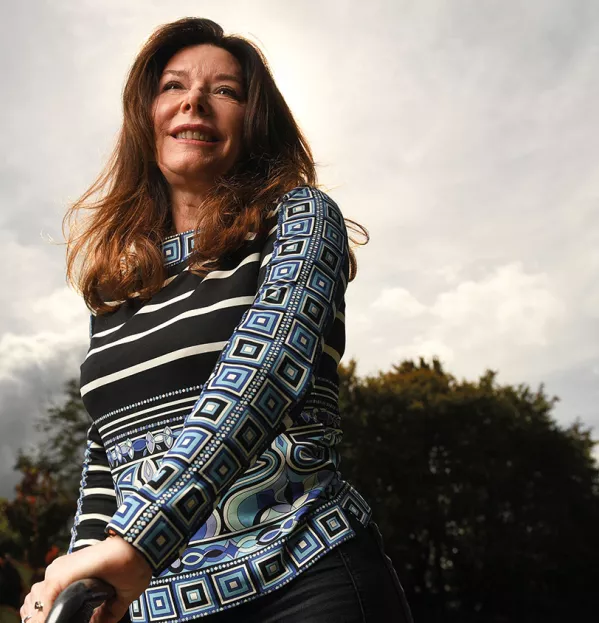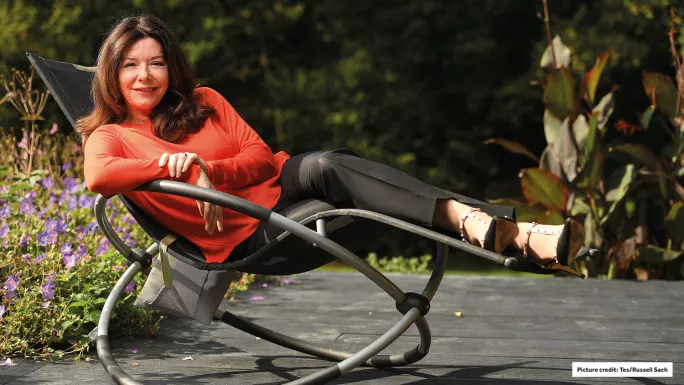How to tackle social mobility? Ask those who’ve ‘escaped the trap’

Christine Ryan has spent more than a decade at the forefront of independent school inspection, working closely with a string of ministers at the Department of Education.
But private schools were once very alien to the former Independent Schools Inspectorate (ISI) chief inspector, who describes her upbringing in Blackpool in the 1950s and ’60s as “feral”.
Reclining on a sofa in her spacious home in the Sussex countryside, six months after leaving the ISI, Ryan is frank about her “unconventional” journey.
She grew up in a large, socially disadvantaged family, where days would pass without Ryan or her six siblings having food to eat or shoes to wear. “We were all pretty feral,” Ryan says. “We ran our own lives.”
Education “was not something that was ever discussed, other than how quickly could you get out of it”, she says. “Being able to contribute financially to the family budget was seen as the priority, first and foremost.”
Her father, a “miner with a pick and shovel”, left when Ryan was 9.
By the age of 13, she had left school - a secondary modern her mum chose for convenience, because her older sister was already there - with no qualifications. While many of her peers were still in class, she was working as a waitress, a kitchen porter and a chamber maid.
“The reality is that I have had a very unusual background for somebody doing the sort of job I am doing; that has driven all the choices I have made. It continues to drive them,” Ryan says.
From factory to faculty
Her career progressed from sewing cuffs on school shirts in a factory, to working as a science teacher in the state sector in the North West, after she managed to teach herself a set of O levels in nine months.
But her move into teaching wasn’t planned, Ryan admits. She had decided to take her exams only after a nearby chemical company told her she needed the qualifications for a better-paid typist job.
“I merrily went along to this company clutching my five O levels, expecting them to give me this wonderful job with all the extra cash, and they said, ‘You’re overqualified. We don’t think you’d stay.’
“I was absolutely devastated. That was my plan,” she recalls. “I was completely at a loss, because I’d got these bloomin’ O levels that I had to spend good money on, getting the exam papers and entry fee. Now they were kind of useless.”
After a conversation with a librarian, she decided to apply to university and was given a place at Liverpool to study for a certificate in education. She went on to complete a degree in chemistry at the Open University.
Teaching the sciences in a Merseyside secondary school, her first experience of inspection came early in her career.
“I didn’t understand why everybody was in such a panic. I just saw them [the inspectors] as people who knew more than I did and people whose brains I could pick,” she recalls.
This visit, by an “inspiring” HMI, stuck in the mind of the former chief inspector.
When she wanted to take a break from teaching after 16 years, having decided she was not interested in senior leadership or management, she turned to inspection.
Ryan began working for Ofsted in the 1990s. She recalls being “shocked” by the poor provision in state primary schools. “Teaching was lacklustre at best and downright scandalous at worst.
“Teachers would literally be sitting with their feet on the desk reading the paper, even when they were being inspected. Schools that had no written curriculum. I couldn’t believe it.”

Ryan’s own experience of primary school was very different. She attended a Catholic school run by “fierce” nuns who were rigid about reading, writing and maths, and where corporal punishment was common.
“Looking back on it now, it was probably my saviour,” she recalls. “I got a pretty good grounding, I think, in those essential skills.”
And it wasn’t long before Ryan began inspecting independent schools. “What surprised me at times was the quality of teaching was no way near as good as I’d expected,” she says. “There were some schools where the teaching was just dull. Dull in the extreme.
“I used to often think, when I was unfortunate enough to sit in some of those lessons, ‘My God, you would be eaten alive in the state sector.’”
She was also initially taken aback by the diversity of the independent sector, and by the “autonomy and in some cases unchallenged authority” of headteachers at some of the oldest schools - in stark contrast to many maintained schools at the time.
She did not find private schools particularly “snobbish”, but says she experienced “reverse prejudice” from others in the profession. “It’s almost as though you’re accused of some sort of class betrayal for having anything to do with the independent sector.”
During her time as chief inspector, Ryan welcomed the DfE starting to take more action when “things were not as they should be” in independent schools.
She says: “What I was looking for was swifter intervention by both the inspectorate and the DfE to put things right where they needed to be put right. In fact, that is one of things I am most proud of during the time at ISI - moving that agenda on.”
‘Disadvantage sounds like a disease’
After 12 years at the helm, Ryan is finally enjoying her retirement from ISI. Not contending with a four-hour commute every day with Southern Rail has given her more time to see her 24-year-old daughter, who is studying for a PhD in neuropsychology.
However, she still has unfinished business. She is determined to improve the opportunities and outcomes for bright students from low-income backgrounds, like herself.
Ryan hopes that her role as chair of TalentEd - a charity that matches expert teachers with bright pupils eligible for free school meals to increase their support - and as a board member of exams regulator Ofqual will help.
“[Qualifications] are your passport to a different life if you’re a disadvantaged person,” she says, then pauses. “I hate that word. I prefer to think of them as self-starters. Disadvantage sounds like a disease you have caught.”
She welcomes the emergence of social mobility on the government’s agenda, but does not think that policymakers understand the type of adversities she faced - because they do not ask.
“I’m unusual but I’m not unique. Some of us do escape, but nobody’s ever asked me what I think makes the difference,” she says. “I see a gap in taking the lessons from people who have been successful in escaping that trap.”
Her advice? “The civil service ought to be leading the way on this. They ought to be at the cutting edge of how to truly get social diversity into their positions, but they still do the old CV sift, which will just be a non-starter for some people.”
Meanwhile, schools, she believes, can help by providing role models and “a calm and ordered refuge”.
Tune into our webinar with Christine Ryan about social mobility (bit.ly/RyanWebinar), ahead of a webchat on 24 October at 4.30pm
You need a Tes subscription to read this article
Subscribe now to read this article and get other subscriber-only content:
- Unlimited access to all Tes magazine content
- Exclusive subscriber-only stories
- Award-winning email newsletters
Already a subscriber? Log in
You need a subscription to read this article
Subscribe now to read this article and get other subscriber-only content, including:
- Unlimited access to all Tes magazine content
- Exclusive subscriber-only stories
- Award-winning email newsletters